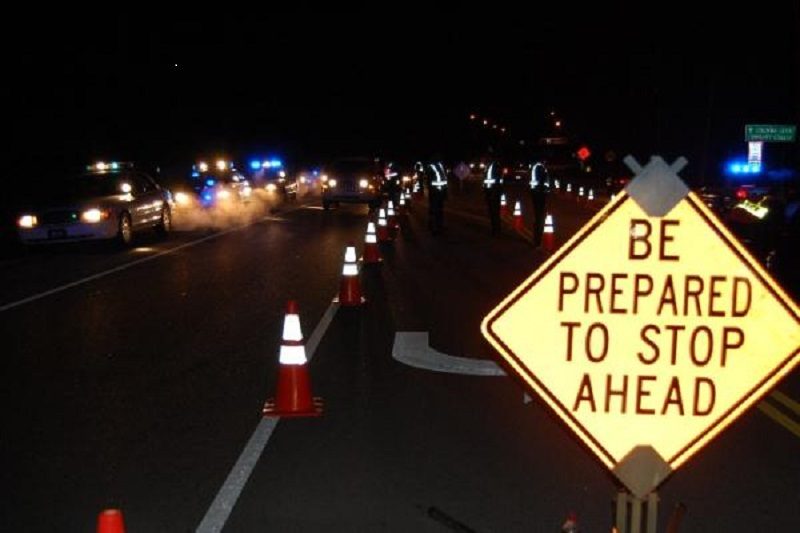Hawai‘i Island Police Discuss DUIs
About one in three traffic deaths in the U.S. involve a drunk driver.
Fatalities caused by impaired driving continue to plague Hawai‘i, consistently placing it above the national average of percent of total traffic fatalities that are alcohol-related. Drugged driving is an increasing problem in our state. It appears, from preliminary data, that the 2018 traffic deaths involving drugs exceeded those involving alcohol by a significant number.
Hawai‘i Island Assistant Police Chief Sam Thomas shared with Big Island Now that as of April 24, 2019, there have been 362 arrests for operating a vehicle under the influence of an intoxicant (OVUII, also known as DUI) on the Big Island; 71 of those drivers were involved in a traffic casualty.

Hawai‘i has a higher percentage of adults who report drinking and driving within the last 30 days than the national average. According to the State of Hawaii Department of Health, Hawai‘i County adults also report the highest amount of binge drinking among the Hawaiian islands.
As of April 24, 2019, there have been 251 OVUII arrests related to alcohol, 20 arrests related to drugs only and 11 arrests related to a combination of both drugs and alcohol.
Drivers with a blood alcohol concentration (BAC) of 0.08% or higher (i.e., drunk drivers) are considered alcohol-impaired by law. Any substance that impairs a driver’s reaction time or attention is dangerous. marijuana, methamphetamine, fentanyl, heroin, cocaine, kava, synthetic drugs and prescription medications are just some of them.
The majority of OVUII arrests in Hawai’i County are of residents, not tourists. From January 1, 2019, to April 24, 2019, Officer’s arrested 340 Hawai’i residents and 22 non-residents. The Hawai‘i Police Department is working to address areas of concern—where a high number of traffic casualties have occurred.
Every month, the police department conducts an analysis of traffic trends, which includes an examination of where traffic crashes are taking place and the factors contributing to these crashes, after which, they take steps to address any notable trends using the resources available.
Bail for the first OVUII arrest normally starts at around $500. However, there are often additional charges for other traffic offenses that are discovered during the investigation or other factors that may warrant high bail, such as prior arrests for contempt of court. The primary purpose of bail is to ensure that a defendant returns for future court appearances.
The police department wishes to remind retail businesses and private organizations that they are accountable for those persons to whom they serve intoxicating beverages. This would also apply to private parties and family gatherings because “everyone is responsible for keeping our roads safe.”
If a driver is suspected of operating a motor vehicle while under the influence of an intoxicating substance, they are asked to perform standardized field sobriety tests that include a breath, and/or blood and/or urine test.
If there is probable cause to believe they have violated the law the officer can arrest them. If anyone refuses to provide a breath, and/or blood, and/or urine test, their driver’s license can be suspended.

DUI checkpoints increase during holiday seasons. BIN photo.
“Consequences come from every decision people make,” said Assistant Chief Thomas. “Aside from the severe legal consequences up to and including imprisonment, there are others, like the loss of a job, increase of vehicle insurance rates and the loss of the privilege to drive. People should not have to learn from being arrested, or involved in an accident due to driving under the influence of an
intoxicant.”
Assistant Chief Thomas believes that the courts, law enforcement agencies, other government agencies such as the Department of Transportation and other organizations (such as M.A.D.D.) are constantly looking for ways to make improvements in connection with public safety and, more specifically, reducing OVUII rates.
 “When you see how the catastrophic impact of how a OVUII affects so many people, it’s easy to understand that it is critical for law enforcement to strictly enforce OVUII laws,” said Assistant Chief Thomas. “If the OVUII results in an accident, many more people are impacted and unfortunately we have had fatalities directly resulting from drivers being intoxicated on alcohol, drugs or both.”
“When you see how the catastrophic impact of how a OVUII affects so many people, it’s easy to understand that it is critical for law enforcement to strictly enforce OVUII laws,” said Assistant Chief Thomas. “If the OVUII results in an accident, many more people are impacted and unfortunately we have had fatalities directly resulting from drivers being intoxicated on alcohol, drugs or both.”
Assistant Chief Thomas added, “At some time in their career, every officer will have to make death notifications to family. It is so much harder for everyone involved when the death was sudden or avoidable, as is often the case with crashes involving intoxicants. These are times that impact not only family but officers as well.”
RELATED LINK
HPD Officers Honored for Fight Against Drunk, Drugged Driving







